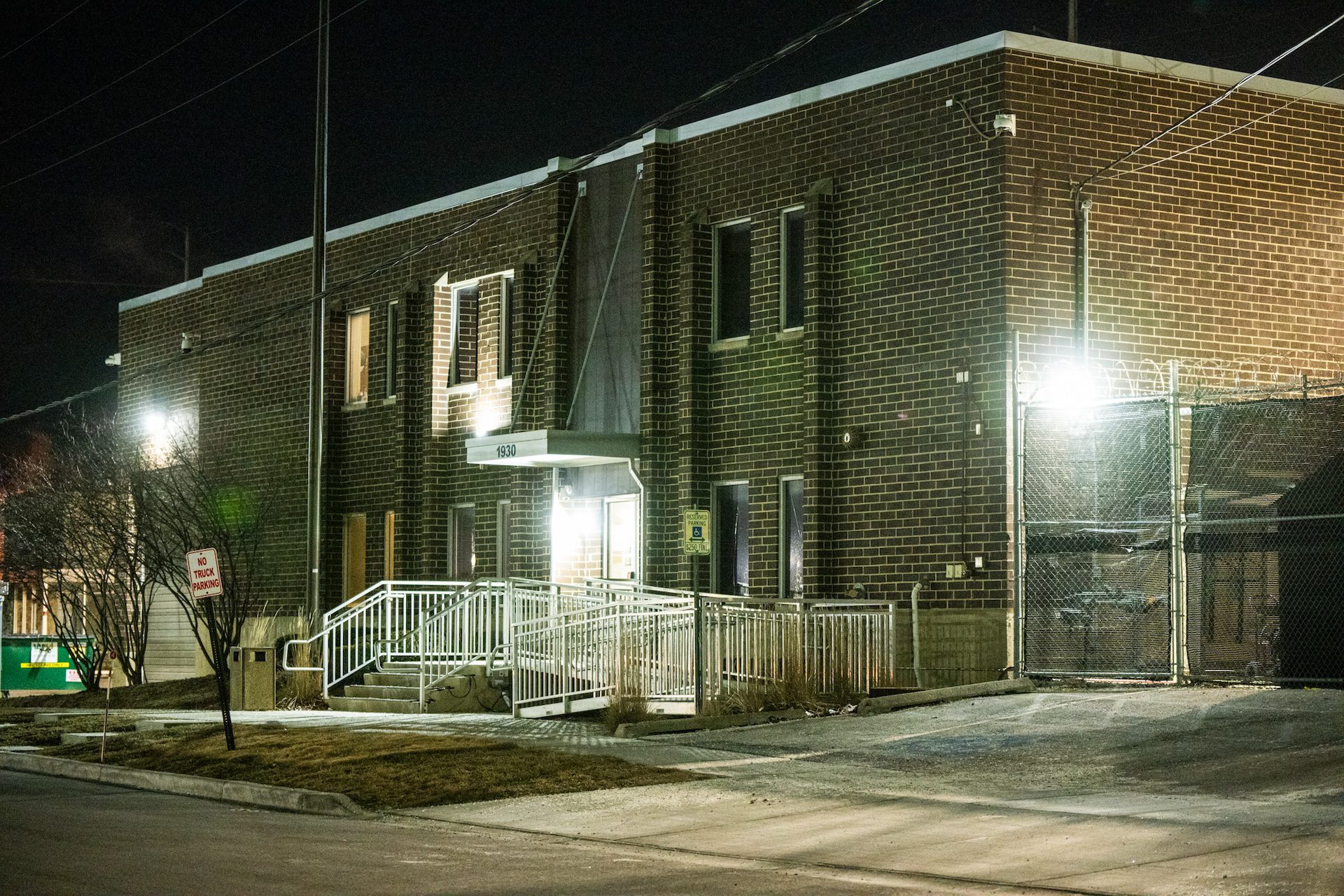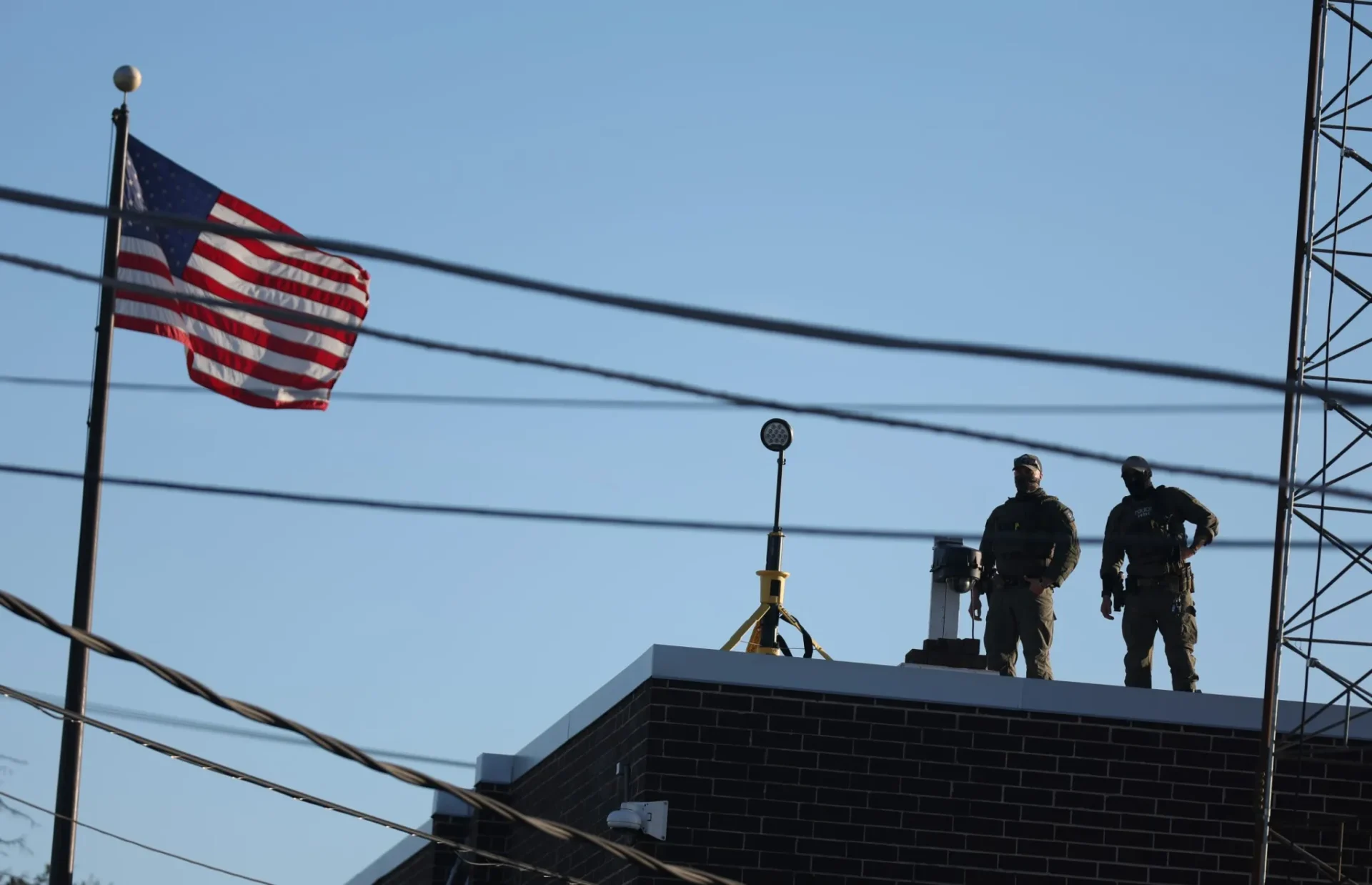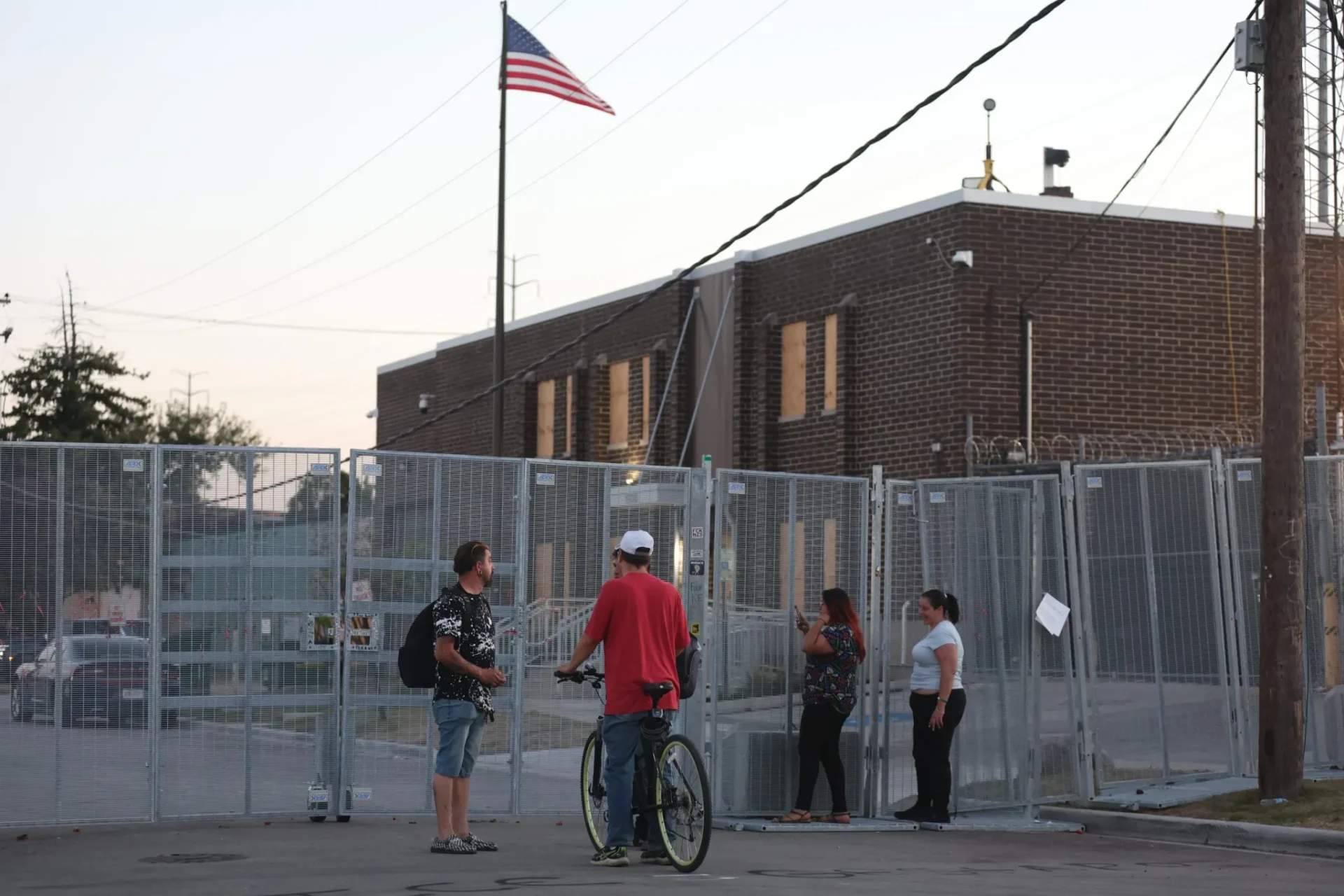 Colin Boyle/Block Club Chicago
Colin Boyle/Block Club ChicagoFederal attorneys said they won’t be able to provide surveillance footage of the controversial facility for 13 days in October, claiming it’s been wiped.
Este historia fue originalmente publicada en Block Club Chicago, una sala de prensa sin fines de lucro enfocada en los vecindarios de Chicago. Suscríbete a su boletín diario gratuito.
CHICAGO — A federal judge is mandating more than a dozen immediate improvements to conditions that he said have been “unnecessarily cruel” inside the ICE facility in suburban Broadview.
While issuing the 14-day restraining order Wednesday, U.S. District Judge Robert Gettleman said he found testimony made in a hours-long hearing Tuesday by five former detained people “highly credible.” Those people described being crammed into cells for days, given little food and water and left to sleep in plastic chairs or on cold floors next to overflowing toilets.
Gettleman’s order first calls for every detained person in Broadview to be given a clean bed mat with “sufficient space to sleep.”
Noticias que ponen el poder en el punto de mira y a las comunidades en el centro.
Suscríbase a nuestro boletín gratuito y reciba actualizaciones dos veces por semana.
That order could decompress the crowded facility, but it doesn’t mandate the 50 square feet of space for each detained person that civil rights attorneys pushing the lawsuit had asked for.
Many people detained during the federal immigration enforcement surge have been taken to the crowded Broadview facility, with some held for days, despite it being designed to process people in around 12 hours. The facility — which has regularly drawn protests — has no beds or working showers.
Gettleman said Tuesday the facility had “become a prison,” and he ordered changes Wednesday to prevent “irreparable harm” to detained people.
Each holding cell must be cleaned twice a day, and every detained person must receive “adequate supplies” of soap, towels, toilet paper, toothbrushes, toothpaste and menstrual products for women, Gettleman said.
The facility must also offer detained people showers at least every other day as well as clean toilets, three meals that meet “U.S. recommended dietary allowances,” prescribed medication dropped off for them and free bottled water whenever asked for.
The order runs until Nov. 19. Gettleman gave defense attorneys representing the federal government a noon Friday deadline to update him on progress. They did not object to the order.

On Tuesday, defense attorneys offered minimal cross-examination of formerly detained people as they testified about conditions at the Broadview facility. The attorneys argued that limiting capacity inside could “effectively halt” the federal government’s efforts at increased immigration enforcement in Illinois, which does not allow ICE to rent space in state jails or prisons.
Gettleman also required detained people be able to speak with attorneys confidentially after plaintiffs alleged Tuesday the facility has become a “black site” where phone calls were limited and always monitored. But the judge did not allow in-person visits, citing “security concerns” related to protests outside.
Immigration lawyers taking the stand Tuesday described steep challenges finding and speaking with their clients held at the facility. Attorneys alleged that dire conditions and lack of attorney access are part of a concerted effort to “coerce” people to sign voluntary deportation papers.
Gettleman sought to address those concerns by requiring all detained people receive a list of pro-bono attorneys upon arrival, interpreter services and have their names listed on ICE’s online locator upon arrival at Broadview “or as soon thereafter is possible.”
“Any papers defendants provide to Detainees should include an accompanying Spanish translation, and defendants shall allow Detainees reasonable time and opportunity to read and understand the papers,” according to the judge’s order.
Kevin Fee, an attorney with the ACLU working on the lawsuit, said he left court Wednesday “happy” with the order.
“We’re very grateful for the judge to have given this relief,” Fee said. “Frankly, a court order should not have been necessary to bring this facility in compliance with the U.S. Constitution. But that is the day and age we’re in.”

Fee said new agreements around discovery Wednesday will start to “provide more of a window into the facility,” which does not allow visitors and where attorneys, elected officials and journalists have been denied entry.
Alexa Van Brunt, a plaintiff attorney with the MacArthur Justice Center, said in court Wednesday the federal government will hand over tracking records allowing her team to “get to the bottom of how many people are inside at any given period of time, how they’re staying and where they’re going after.”
They’ll receive a “sample packet” of blank forms given to detained people upon arrival to address “allegations about coerced signing,” Van Brunt said. The plaintiffs will also review floor plans and depose facility leaders.
But the discovery stopped short of allowing a site inspection. Surveillance footage at the facility provided to the plaintiffs will not include Oct. 19-31 — which defense attorney Jana Brady claimed had been wiped after an “overwhelming” request for it in a separate case about federal agents’ use of force.
Gettleman said he had to keep his order “vague” because he, like many others, has yet to see what the inside of the facility looks like.

